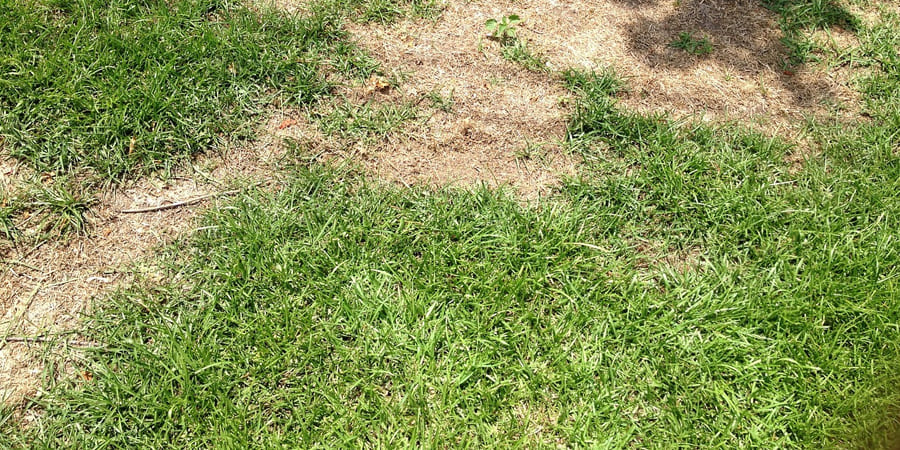Why is the Grass Over My Septic Tank Dead?
Having a lush and vibrant lawn is a dream for many homeowners. However, if you’ve noticed that the grass above your septic tank is mysteriously withered and lifeless, it can be a cause for concern. In this article, we will delve into the possible reasons behind the death of grass over septic tanks and provide you with valuable insights to address this issue.
| Possible Causes | Description |
|---|---|
| Poor Drainage | Septic tanks require proper drainage systems to function effectively. If the drainage system is compromised or inadequate, excess water can accumulate, leading to waterlogged soil and suffocating the grass roots. |
| Chemical Imbalance | The chemicals and substances present in septic tanks, such as detergents, cleaning agents, and waste materials, can seep into the surrounding soil. These chemicals can alter the pH levels and nutrient composition, making it difficult for grass to thrive. |
| Root Damage | During the installation or maintenance of septic tanks, the roots of nearby trees or shrubs may be inadvertently damaged. This can disrupt the grass’s access to essential nutrients and water, leading to its decline. |
| Compacted Soil | Septic tanks are often buried beneath the ground, and heavy machinery or vehicles passing over the area can compact the soil. Compacted soil restricts air circulation and prevents proper root growth, resulting in weak and dying grass. |
Now that we have identified some potential causes, let’s explore each one in detail to gain a better understanding of why the grass over your septic tank may be suffering. By uncovering the underlying issues, you can take appropriate measures to revive your lawn and ensure the long-term health of your septic system.
Possible Causes for Dead Grass Over Your Septic Tank
When your grass appears lifeless and brown above your septic tank, several factors could be contributing to its demise. Let’s explore the potential causes in more detail:
Poor Drainage
One of the common culprits behind dead grass over a septic tank is poor drainage. Septic tanks rely on a well-functioning drainage system to ensure the proper flow and disposal of wastewater. If the drainage system is compromised or inadequate, excess water can accumulate around the tank, saturating the soil and suffocating the grass roots.

To address this issue, it is crucial to assess the condition of your septic tank’s drainage system. Ensure that the pipes are clear of any blockages or damage. If necessary, consult a professional to evaluate and improve the drainage system to prevent waterlogging and revive your grass.
Chemical Imbalance
The chemicals and substances present in septic tanks, such as detergents, cleaning agents, and waste materials, can seep into the surrounding soil. Over time, these chemicals can alter the pH levels and nutrient composition of the soil, making it inhospitable for grass growth.
To mitigate this issue, consider implementing measures to minimize the introduction of harmful chemicals into your septic system. Use eco-friendly cleaning products and avoid disposing of hazardous substances down the drain. Additionally, regular maintenance and proper septic tank treatments can help restore a healthy chemical balance in the soil.
Root Damage
During the installation or maintenance of septic tanks, the roots of nearby trees or shrubs may be inadvertently damaged. This can disrupt the grass’s access to essential nutrients and water, leading to its decline. Additionally, the heavy weight of septic tank equipment or vehicles passing over the area can compact the soil, further impeding root growth.
To prevent root damage, exercise caution when working near your septic tank. Be mindful of the root systems of nearby plants and take necessary precautions to protect them during installation or maintenance activities. Avoid driving heavy machinery or vehicles over the septic tank area to prevent soil compaction.
Compacted Soil
Septic tanks are typically buried beneath the ground, and the weight of soil and occasional traffic can cause compaction. Compacted soil restricts air circulation and hampers water absorption, depriving the grass roots of essential oxygen and nutrients.
To alleviate soil compaction, consider aerating the affected area. Aeration involves creating small holes in the soil to promote better airflow and water penetration. This process helps loosen compacted soil, allowing the grass roots to breathe and access vital nutrients. Regular aeration can significantly improve the health and vitality of your grass.
Conclusions
When the grass above your septic tank appears dead and lifeless, it is essential to investigate the underlying causes to address the issue effectively. Poor drainage, chemical imbalances, root damage, and compacted soil are common factors that can contribute to the demise of your grass. By identifying the specific cause and taking appropriate measures, such as improving drainage, minimizing chemical exposure, protecting roots, and aerating the soil, you can revive your lawn and ensure the long-term health of your septic system.
0 Comments